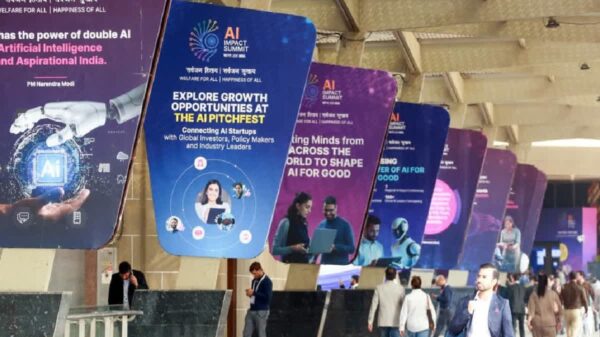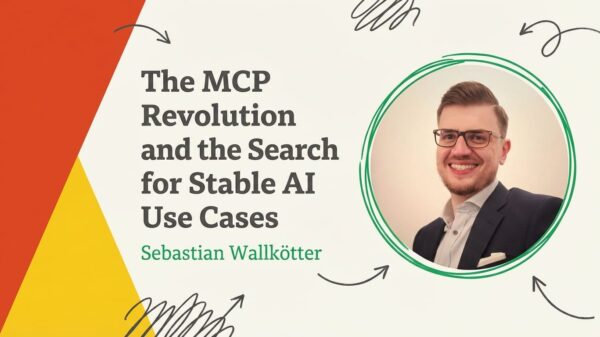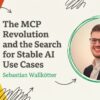Worldpay has launched a new tool, Worldpay MCP, designed to enhance AI-powered payment integration and promote what the company terms “agentic commerce.” Announced on Monday, November 24, this tool is now available through the company’s Developer Hub and GitHub, enabling developers and merchants to create artificial intelligence agents and direct payment integrations using Worldpay’s API.
The MCP, which stands for Multi-Channel Protocol, is an open standard introduced late last year by Anthropic. Its goal is to facilitate the utility of AI systems within real-world business environments by allowing models like Claude, ChatGPT, or Gemini to securely interact with business tools, databases, and workflows. According to a report from PYMNTS, modern AI models excel at generating text and insights, but often fall short in acting on live data. For example, while a customer-service chatbot can explain how to reset a password, it typically lacks the secure, structured access needed to perform that action.
The Worldpay MCP addresses this limitation by enabling AI systems to request and execute actions such as retrieving information, updating records, or triggering workflows, all while adhering to specific security protocols. This transformation shifts AI from a passive assistant to an active agent in commercial transactions. As consumer expectations evolve, Worldpay noted that 44% of shoppers surveyed expressed a willingness to allow an AI bot to browse on their behalf, indicating a growing appetite for more autonomous and AI-driven shopping experiences.
“Agentic commerce is rapidly emerging as the next evolutionary step in online shopping,” stated Cindy Turner, chief product officer at Worldpay. She emphasized that the launch of the Worldpay MCP responds to the needs of developers and merchants, offering them the flexibility to innovate within a controlled environment while maintaining direct access to Worldpay’s global payment infrastructure. “We’re not adding another protocol; we’re making them all work together for sellers,” she added.
However, Worldpay’s survey also highlighted consumer hesitations regarding the extent to which they are comfortable with agentic commerce. Respondents indicated they were less inclined to allow AI to make purchases in certain categories, including travel, concert tickets, clothing, and home decor, suggesting a cautious approach to AI’s role in those areas.
In addition to the MCP, Worldpay recently announced its support for OpenAI’s Agentic Commerce Protocol (ACP), another open standard for agentic commerce that facilitates collaboration between AI agents, consumers, and businesses in the purchasing process. Through the ACP, U.S. users of OpenAI’s ChatGPT can make purchases directly from participating Worldpay merchants using Instant Checkout, further integrating AI into the shopping experience.
“For agentic commerce to truly scale, it must deliver seamless, secure payments that both consumers and merchants can trust,” Turner remarked during the announcement of the ACP support. This sentiment underscores the growing importance of security and trust in the development of AI-fueled commerce solutions.
As the landscape of online shopping continues to evolve, tools like Worldpay MCP and standards such as ACP may play a crucial role in shaping how consumers interact with AI in commercial settings. The push toward agentic commerce reflects a broader trend of integrating intelligent systems into everyday business processes, which could redefine the consumer experience in the digital marketplace.
See also Amazon Announces $50 Billion Investment to Expand AI and Supercomputing for US Government
Amazon Announces $50 Billion Investment to Expand AI and Supercomputing for US Government Nokia Commits $4 Billion to U.S. AI-Ready Networks, Boosting R&D and Manufacturing Capacity
Nokia Commits $4 Billion to U.S. AI-Ready Networks, Boosting R&D and Manufacturing Capacity AlphaFold Enhances Drug Discovery as Genesis AI Unveils Pearl Model with Sub-Angstrom Accuracy
AlphaFold Enhances Drug Discovery as Genesis AI Unveils Pearl Model with Sub-Angstrom Accuracy Europe’s AI Act Sets Strict Risk Regulations: Major Compliance Deadlines Looming for Tech Firms
Europe’s AI Act Sets Strict Risk Regulations: Major Compliance Deadlines Looming for Tech Firms Nvidia Stock Rises 1.79% as Trump Considers Selling H200 AI Chips to China
Nvidia Stock Rises 1.79% as Trump Considers Selling H200 AI Chips to China



































































